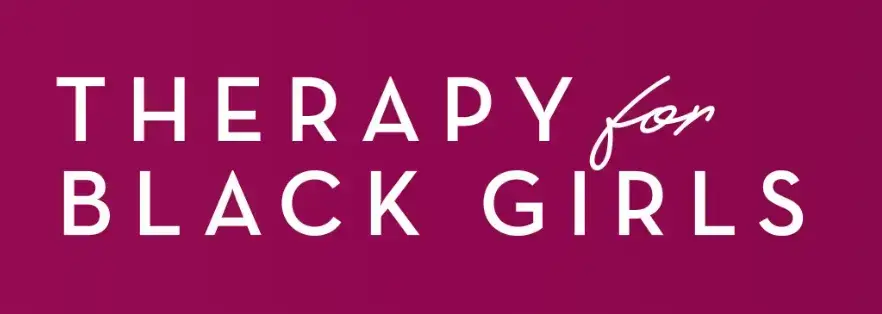

Relationships are a beautiful yet complex dance, requiring rhythm, resilience, and mutual understanding. However, even the strongest bonds encounter turbulence. Recognizing these relationship challenges and seeking therapy tips for couples can be the compass guiding you back to harmonious coexistence and profound connection.
Couples Counseling to Identify Common Relationship Challenges
Such obstacles can cast shadows of doubt, frustration, and disconnect over a partnership, threatening the very foundation upon which it’s built.
Every couple’s journey is as unique as the individuals in it, yet many find themselves navigating through similar storms. These relationship challenges, if not addressed, can grow into significant rifts, creating emotional distance between partners.
We’ve identified some of the most common areas of relationship challenges that lead to couples counseling and offer our potential solutions.
Relationship Challenge #1:
Communication Breakdowns
Communication is the lifeline of any relationship. When this lifeline starts to fray, couples find themselves feeling misunderstood or unheard, leading to frustration and disconnection. For instance, when one partner feels their words consistently fall on deaf ears, they might start to withdraw, leading to an emotional impasse.
Therapist-Tip #1
If you’re experiencing relationship challenges related to communication, practice these skills with your partner:
Active Listening: when your partner speaks, give them your full attention. Respond with empathy and without judgment.
Make The Time: Scheduling regular, distraction-free ‘check-ins’ can also provide a safe space for open dialogue. In therapy sessions, couples are guided through communication exercises, and encouraged to work through external stressors, such as work.
Transparent Communication: This involves not only speaking one’s truth but also actively listening to the partner’s disclosures. It’s a reciprocal dance of give-and-take, where both partners feel safe enough to unveil their deepest fears, desires, and dreams.
Non-Violent Communication (NVC): This is a communication methodology founded on compassion, empathy, and honest expression. It involves articulating one’s feelings and needs without resorting to criticism, blame, or manipulation. NVC encourages individuals to take responsibility for their emotions and actions, fostering a non-confrontational dialogue environment. This approach is particularly beneficial in conflict resolution, where heightened emotions can lead to hurtful exchanges and further emotional distancing.
Expressing Without Blaming: One of the most common pitfalls in communication within relationships is the blame game.Learning to express oneself without blaming involves using “I” statements (I feel, I need), which center the conversation on the speaker’s experience rather than attributing fault. This technique encourages personal responsibility and reduces defensive reactions, paving the way for more productive and empathetic interactions.
Relationship Challenge #2:
Trust Issues
Therapist-Tip #2
Trust is the foundation upon which relationships are built, and when it’s shaken, it destabilizes the entire relationship. This can occur following infidelity, dishonesty, or even smaller, consistent instances of unreliability. A partner arriving late repeatedly without explanation, for example, can sow seeds of doubt and mistrust.
Solution:
Rebuilding trust takes time and sincerity. Reaching a deeper level of communication, as discussed above, requires trust.Trust is the component that can only be built over time and through consistent, positive interactions. It necessitates a departure from the realms of assumption, judgment, and reaction, venturing instead into territories of curiosity, compassion, and response. The offending partner needs to consistently demonstrate their commitment to change. This might involve more transparent communication, steadfast honesty, and concrete actions that show reliability. Therapy can facilitate this process, providing structured ways to rebuild trust, like creating ‘trust agreements’ or exploring underlying issues that led to the betrayal.
Relationship Challenge #3:
Conflicting Values
Therapist-Tip #3
Differences in core values can create persistent undercurrents of tension. Imagine a couple where one partner values a simple, frugal lifestyle while the other yearns for luxury and affluence. Such fundamental discrepancies can lead to daily conflicts and a sense of incompatibility.
Solution: Resolving conflicts arising from divergent values often involves a degree of compromise. Partners need to openly discuss their values, striving to understand each other’s perspectives. Finding common ground or agreeing to a balanced approach that honors both sets of values can be facilitated through couples counseling, using techniques like value-mapping and mutual goal-setting.
Relationship Challenge #4:
Intimacy Discrepancies
Therapist-Tip #4
Intimacy is a complex, multifaceted component of relationships, encompassing both physical and emotional elements. Challenges arise when partners’ needs or desires don’t align—perhaps one partner seeks more affection, while the other craves space.
Solution: Addressing intimacy issues first requires open, honest conversation about each partner’s needs and expectations. Couples need to show vulnerability and empathy in these discussions. I recommend scheduled intimacy exercises for some couples, which can help reignite connection and understanding. Therapy can also provide a safe space for discussing more sensitive issues, with guided conversations o focus exercises.
Relationship Challenge #5:
Financial Stress
Therapist-Tip #5
Money issues are a common source of stress for couples, whether due to differing spending habits, financial crises, or disagreements on monetary goals. For example, if one partner is a risk-taker investing in volatile ventures while the other prefers saving for a rainy day, tensions can boil.
Solution: Effective management of financial strain involves transparent discussion about financial positions, expectations, and fears. Creating a joint budget, setting shared financial goals, and even meeting with a financial advisor can help. In therapy, couples learn to communicate about finances respectfully and constructively, understanding that this topic often touches on deeper issues of security and control.
Remember, while these challenges are common, they’re not insurmountable. With commitment, communication, and, in many cases, the guidance of a professional, couples can find their way back to harmony and mutual understanding.
Common & unspoken, relationship challenges
While many couples face issues like communication breakdowns or financial stress, there are other profound challenges that often lurk beneath the surface, less visible but with a significant impact. These issues are frequently rooted in deep emotional scars and can be more complex to unravel, yet they are integral to address for the health and vitality of the relationship.
Emotional Blocks, Trauma & Abuse
One of the most profound, yet often hidden, disruptors of relationship harmony are the emotional blocks stemming from past trauma, ongoing mental health struggles, and experiences of abuse. These blocks can manifest in various ways within a relationship, including difficulty trusting one’s partner, fear of intimacy, or even aggressive or withdrawn behaviors. For instance, a partner with a history of trauma might find it challenging to open up emotionally, creating a sense of distance and misunderstanding in the relationship.
Healing Relationship Challenges with Couples Counseling
Addressing these deep-seated issues requires a delicate, often multi-faceted approach. In couples counseling, creating a safe, non-judgmental space is paramount. Couples Counseling might involve individual sessions to delve into personal histories, coupled with joint sessions where partners can communicate their feelings and experiences with the guidance of the therapist. Techniques such as trauma-informed care, cognitive-behavioral therapy (CBT), or even eye movement desensitization and reprocessing (EMDR) for trauma cases can be instrumental in these scenarios.
Furthermore, therapy for these complex challenges often involves learning and practicing new communication skills, tailored to the couple’s specific needs. For example, a therapist might guide a couple in how to express and receive emotional triggers or how to ask for and provide the necessary space when past traumas or mental health pressures surface.
Final Thoughts on Overcoming Relationship Challenges
For most couples in couples therapy, the goal is to foster understanding and empathy to create a supportive environment where healing can occur, and emotional intimacy can flourish. Remember, the less discussed challenges don’t signify a broken relationship but rather areas requiring empathy, patience, and often professional guidance. With the right support, couples can navigate these murky waters and emerge with a stronger, more understanding bond.
General FAQ's About Therapy
Where are you located? I need a therapist near me
We are fully online, which means that your therapy sessions will be help via video call on our HIPAA compliant Platform. Anyone in New Jersey can access our therapy services
How do I get started as a new client?
New Clients can reach out to us directly via call, text or email here:
Does my insurance cover my visits?
We provide”Courtesy Billing” for clients who are using the Out-of-network insurance benefits.
Our Insurance Page shares a small blurb about Why We Left Insurance Panels
What are out-of-network benefits?
When using OON benefits, patients typically pay the full cost of the treatment upfront and then file a claim with their insurance company for reimbursement. The amount of reimbursement can vary depending on the plan, but it can sometimes be as high as 90%. Call your insurance to see if you have OON benefits or click here to call us and we can check for you!
Is Online Therapy As Effective As In-Person Therapy?
Online therapy is essentially face-to-face counseling, just conducted remotely. Studies show that tele-therapy is as effective as traditional counseling. Professional organizations and state governments recognize its benefits and have set regulations for it. However, like any therapy, its success in achieving your goals isn’t guaranteed. It’s important to discuss with your therapist whether tele-therapy is working for you.
How Should I Prepare for My First Session?
Showing up is all that you need to do! But if you really want to get the most out of session, it could help to take some time to think about what you want from therapy. It helps to write down your goals, questions you have or things that you feel are important to share.
Do you offer traditional talk therapy?
of course! though we have some unconventional therapy approaches, we are rooted in evidenced based practices. Talk therapy is a major player in the therapy room! See What we Treat and Integrative Services for more information
Is Virtual Counseling Suitable for Everyone?
Online therapy might not be as effective for individuals with chronic suicidal thoughts, severe trauma, significant mental health history, or those recently in intensive care. Such cases often benefit more from traditional, in-person counseling. We’ll help you decide if our online services are right for you during your intake and evaluation.
Can I Change Therapists If I'm Not Happy?
Yes, you can switch therapists to another provider within the practice, or we can provide you a referral if preferred. We want to ensure that your time and effort are well spent, and that you are getting the relief you need, that’s why we work collaboratively with each other in the practice, as well as outside therapists who we know and trust.
How Do I Know If Therapy Is Helping?
You should feel like you’re making progress. Signs it’s working include:
- Feeling comfortable talking to your therapist
- Your therapist respects boundaries
- You’re moving towards your goals
- You feel listened to
You’re doing better in life - Your self-esteem is getting better
What is your cancellation policy?
We ask that clients provide at least 24 hours notice in the event that they need to cancel to avoid the 50% cancellation fee. we understand that life happens and do our best to be flexible & reschedule.
What Geographic Areas Are Served?
Currently, we serve clients in New Jersey and are expanding to other states as telehealth laws evolve. While telehealth offers the convenience of attending sessions from anywhere, state laws require clients to be in-state during their session.
Is Online Therapy Easy to Use for Non-Tech-Savvy People?
Yes, it’s pretty simple to access sessions. You’ll need basic internet skills, such as opening and visiting the patient link sent to you via email. It’s similar to video chatting like Facetime or Zoom. We can also walk you through it on the phone the first time to ensure a strong connection
What Questions Should I Ask My New Therapist?
Feel free to ask anything. Some good questions are:
- How often will we meet?
- What do you specialize in?
- What experience do you have with my issue?
- What outcomes can I expect?
- How will I know I’m progressing?
- How long do you usually work with clients?
- How will we set my treatment goals?
What is the difference between associate therapists & fully licensed therapists?
Our Qualifications:
Our founder, Rebecca Sidoti, is a highly qualified, state-licensed therapist and supervisor with extensive training in anxiety related disorders and innovative treatment such as Ketamine Therapy. Mind by Design Counseling adheres to standards set by the our governing counseling boards.
To see each providers credentials, training and licenses, visit our “Meet the Therapists” Page to learn more.
- LAC/LSW are therapists who may practice clinical work under the supervision of a fully licensed therapist.
- LPC/LCSW are therapists who have completed the necessary clinical hours post-graduation under supervision and can practice clinical work independently.







